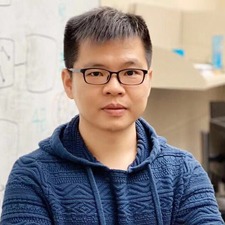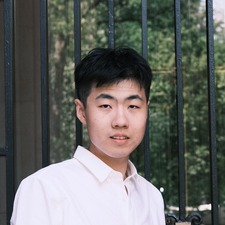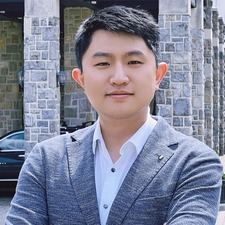
Towards Agentic AI for Science: Hypothesis Generation, Comprehension, Quantification, and Validation (AAAI 2025 Spring Symposium Series)
March 31-April 02, 2025 | San Francisco Airport Marriott | Waterfront | Burlingame, CA, USA
The symposium allows both in-person and remote participation
About the Symposium
Our mission is to foster interdisciplinary collaboration to develop fully autonomous AI systems, addressing challenges like benchmark datasets, human-AI collaboration, robust tools and methods for validating AI outputs, and trustworthiness. By tackling these issues, we can unlock AI's transformative potential in research. In this symposium, themed Agentic AI for Science, we will explore these critical topics and welcome diverse perspectives. We will focus on integrating agentic AI systems to enhance scientific discovery while upholding rigorous standards. For AI to contribute effectively, it must generate novel hypotheses, comprehend their applications, quantify testing resources, and validate feasibility through well-designed experiments. This symposium serves as a vital forum for collaboration and knowledge-sharing aimed at redefining the landscape of scientific discovery. This symposium aims to address four main research thrusts to propel future research, including (non-exclusively):
Thrust 1. Design and development of agentic AI systems for scientific discovery. The emergence of agentic AI, powered by foundation models—particularly generative models—opens up unprecedented opportunities for scientific discovery. These systems can potentially revolutionize various aspects of the scientific process, including hypothesis generation, comprehension of complex scientific phenomena, quantification, and validation. Designing and developing effective agentic AI systems for scientific discovery is both exciting and non-trivial. Pioneering work in this field has already demonstrated the promise of leveraging scientific tools, agents, and knowledge graphs. Notable examples include ChemCrow, which showcases the potential of AI in chemistry; Crispr-GPT, which applies AI to genetic engineering; and SciAgents , which illustrates the power of multi-agent systems in scientific discovery. These groundbreaking studies highlight the transformative potential of agentic AI in accelerating scientific progress and opening new avenues for research. Key research topics in this thrust include (but not limited to):
- Developing scientific foundation models: Tailoring general foundation models specifically for various scientific fields to enhance relevance and accuracy.
- Effective scientific tool augmentation: Enhancing existing scientific tools and methodologies with agentic AI capabilities.
- Multi-agent decomposition design: Developing frameworks for scientific hypothesis generation using multiple specialized AI agents.
- Human-in-the-loop agentic systems: Improving reliability and interpretability of AI-driven scientific discoveries through strategic human intervention.
Thrust 2. Theoretical foundation for scientific agentic AI. Developing agentic scientific AI requires methods to quantify the predictions and performance of these systems, as well as to validate the scientific hypotheses they generate. A thorough investigation of agentic scientific AI systems also demands solid theoretical foundations and tools to ensure guarantees on their behavior. To analyze and evaluate such systems, we will incorporate theoretical tools in modeling, logical reasoning, model validation and diagnosis, interpretable AI, and other general methods that can provide guarantees on agentic systems. Key topics in this area include, but are not limited to, the following:
- Theoretical foundation: Statistical models and theories of agentic scientific AI, such as theoretical studies on in-context learning, multi-agent communications, game theory, physics-informed hard and soft optimization constraints, and neural operators.
- Logic reasoning: Inductive, deductive, and abductive reasoning; Bayesian reasoning and probabilistic programming; neural-symbolic approaches.
- Model quantification, validation, diagnosis: Theory-driven metrics for quantifying AI system performance; self-evaluation of LLMs; data valuation and data-centric AI; diagnostics for data, architecture, and training processes; creation of standardized benchmarks for evaluating the validity of scientific hypothesis generation; scientific facts and hallucination.
- Interpretable AI: Approaches for explaining agentic AI system behaviors; quantifying trust, safety, and transparency; mechanistic interpretability.
Thrust 3. Practical application of scientific agentic AI. Deploying agentic AI systems in practical scientific research across diverse domains presents numerous challenges, particularly due to the need for domain-specific adaptation such as the unique data formats and model constraints of each scientific field. Bias in training data poses a significant risk, especially in sensitive domains like medicine. Trustworthiness and explainability are essential for scientists to confidently integrate AI-generated hypotheses and solutions into their research. Furthermore, ethical considerations arise when AI systems potentially automate research decisions that may impact public health, policy, or environmental outcomes, underscoring the importance of responsible AI deployment in science.
- Domain-specific model adaptation: Adapting agentic AI models to handle domain-specific data formats, workflows, and tools across various scientific fields; transfer learning and data-efficient fine-tuning.
- Bias detection and mitigation: Identifying and mitigating bias in training data, model design and outputs; fairness-aware AI systems for sensitive domains like healthcare and social science.
- Robustness, trustworthiness and explainability: Methods for improving the transparency and explainability of agentic AI systems in scientific research; uncertainty interpretation and quantification.
- Ethical considerations and responsible use of agentic AI in sensitive research areas; development of AI governance models to ensure accountability and human oversight in automated scientific workflows.
Thrust 4. Open problems and challenges on scientific agentic AI. Despite the promising potential of agentic AI in scientific discovery, many open problems and challenges remain to be addressed. These may include:
- Automatic curation of domain-specific scientific domains and integration of the knowledge into agentic AI systems.
- Advanced mechanisms of multi-agent collaboration in scientific discovery, with considerations of their scalability and computational efficiency.
- Continual evolution and learning of agentic AI systems; Mechanisms for updating models and improving performance based on experimental results, new data and discoveries.
- Validation and reproducibility of results generated by agentic AI systems.
Call for Papers
We are pleased to announce the Symposium on Agentic AI for Science: Hypothesis Generation, Comprehension, Quantification, and Validation as part of AAAI Spring Symposium Series, 2025, to be held at San Francisco Airport Marriott Waterfront, Burlingame, CA, USA on March 31-April 02, 2025. This symposium aims to explore the transformative potential of agentic AI in scientific discovery, focusing on hypothesis generation, validation, and other critical stages of the scientific process. By fostering interdisciplinary collaboration, the symposium seeks to address challenges and unlock new opportunities in the design and application of agentic AI systems.
Important Deadlines
All deadlines are 11:59pm Anywhere on Earth (AoE):
For archival papers:
- Paper submission deadline: February 3, 2025 (extended from February 1, 2025)
- Acceptance notification: February 10, 2025
- Camera-ready deadline: February 17, 2025
For non-archival papers:
- Early batch, which will get an early notification:
- Paper submission deadline: February 10, 2025 (extended from February 1, 2025)
- Acceptance notification: February 17, 2025 (extended from February 10, 2025)
- Late batch:
- Paper submission deadline: March 30, 2025
Symposium dates: March 31–April 2, 2025
Submission Requirements
We welcome submissions in the form of both full papers and position or short papers. Submissions may be archival or non-archival. Accepted archival papers will be published as part of the “Proceedings of the AAAI Symposium Series” by the AAAI Library.
- Maximum length: 7 pages of main content, with unlimited pages for references.
- Anonymity: Submissions must be anonymized for double-blind review. Please do not include acknowledgments in the initial submission.
- Formatting: Use the AAAI-25 Author Kit for formatting your submission.
Submission Site
Submissions will be managed via the AAAI Official EasyChair site: EasyChair Submission Portal.
Reviewing Process
Each submission will undergo a rigorous double-blind peer-review process. Submissions will be evaluated based on technical merit, originality, relevance, and adherence to ethical principles.
Publication and Presentation Policies
Accepted papers will be published in the "Proceedings of the AAAI Symposium Series" and presented during the symposium. Authors are required to present their papers in-person during the symposium.
Program Committee Co-Chairs
-
Dr. Lifu Huang - UC Davis
lfuhuang@ucdavis.edu -
Dr. Dawei Zhou - Virginia Tech
zhoud@vt.edu -
Mingyu Derek Ma - UC Los Angeles
derek.ma@ucla.edu -
Dr. Adithya Kulkarni - Virginia Tech
aditkulk@vt.edu
Symposium Schedule
The symposium is scheduled to take place during the AAAI Spring Symposium Series from March 31 to April 2, 2025.
| Date | Time | Schedule |
|---|---|---|
| 03/31 | 09:00 - 09:10 AM | Opening Remarks (Dr. Yujun Yan - Dartmouth College) |
| 09:10 - 09:55 AM | Keynote #1 (Dr. Markus J Buehler - Massachusetts Institute of Technology) | |
| 09:55 - 10:30 AM | Speed Dating Workshop | |
| 10:30 - 11:00 AM | Coffee Break | |
| 11:00 - 12:00 PM | Panel Discussion #1 (Dr. Markus J Buehler, Dr. Michael Mahoney) | |
| 12:00 PM - 12:45 PM | Keynote #2 (Dr. Michael Mahoney - University of California, Berkeley) | |
| 12:45 - 02:00 PM | Lunch Break | |
| 02:00 - 02:45 PM | Keynote #3 (Dr. Hanghang Tong - University of Illinois at Urbana-Champaign) - Remote | |
| 02:45 - 03:15 PM | Breakout Session | |
| 03:15 - 03:30 PM | Accepted Talks (A Nature-Inspired Colony of Artificial Intelligence System with Fast, Detailed, and Organized Learner Agents for Enhancing Diversity and Quality) | |
| 03:30 - 04:00 PM | Coffee Break | |
| 04:00 - 04:15 PM | Accepted Talk (UNIMATE: A Unified Model for Mechanical Metamaterial Generation, Property Prediction, and Condition Confirmation) | |
| 04:15 - 04:30 PM | Accepted Talk (MetamatBench: Integrating Heterogeneous Data, Computational Tools, and Visual Interface for Metamaterial Discovery) | |
| 04:30 - 04:45 PM | Closing Remarks (Dr. Yujun Yan - Dartmouth College) | |
| 04:45 - 05:30 PM | Poster Session | |
| 06:00 - 07:00 PM | Reception - Salon F | |
| 04/01 | 09:00 - 09:10 AM | Recap of Day 01 (Dr. Lifu Huang - University of California, Davis) |
| 09:10 - 09:55 AM | Keynote #4 (Dr. Jure Leskovec - Stanford University) | |
| 09:55 - 10:30 AM | Invited Talk #1 (Dr. James Zou - Stanford University) | |
| 10:30 - 11:00 AM | Coffee Break | |
| 11:00 - 11:35 AM | Invited Talk #2 (Dr. Lifu Huang - University of California, Davis) | |
| 11:35 AM - 12:10 PM | Industry Presentation #1 (Dr. Mingyu Derek Ma - Genentech/Roche) | |
| 12:10 PM - 12:30 PM | Brainstorming Session | |
| 12:30 - 01:30 PM | Lunch Break | |
| 01:30 - 02:05 PM | Invited Talk #3 (Dr. Yujun Yan - Dartmouth College) | |
| 02:05 - 02:50 PM | Keynote #5 (Dr. Yan Liu - University of Southern California) - Remote | |
| 02:50 - 03:25 PM | Invited Talk #4 (Dr. Qi Li - Iowa State University) - Remote | |
| 03:25 - 04:00 PM | Coffee Break | |
| 04:00 - 05:00 PM | Panel Discussion #2 (Dr. Yujun Yan, Dr. Jure Leskovec, Dr. James Zou, Dr. Erica Briscoe) | |
| 05:00 - 05:15 PM | Closing Remarks (Dr. Lifu Huang - University of California, Davis) | |
| 06:00 - 07:00 PM | Plenary - Salon E | |
| 04/02 | 09:00 - 09:10 AM | Recap of Day 02 (Dr. Adithya Kulkarni - Virginia Tech) |
| 09:10 - 09:55 AM | Keynote #6 (Dr. Alvaro Velasquez - DARPA) - Remote | |
| 09:55 - 10:30 AM | Invited Talk #5 (Dr. Hanchen Wang - Stanford University) | |
| 10:30 - 11:00 AM | Coffee Break | |
| 11:00 - 11:45 AM | Keynote #7 (Dr. Erica Briscoe - DARPA) | |
| 11:45 - 12:20 PM | Industry Presentation #2 (Dr. Siddharth Narayanan - FutureHouse) | |
| 12:20 - 12:30 PM | Closing Remarks (Dr. Adithya Kulkarni - Virginia Tech) |
ORGANIZERS
Publicity Chair
CONTACT US
For inquiries regarding the symposium, please reach out to us at aditkulk@vt.edu.












